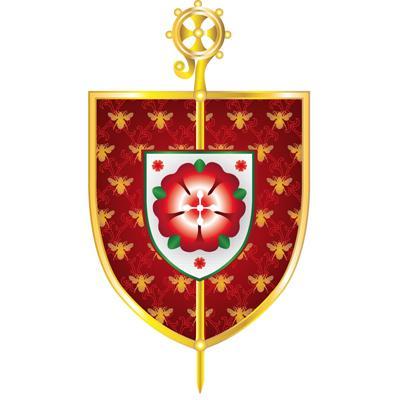The Diocese of Salford LGBTQ Masses ministers to a group of LGBTQ people located in the northwest of England. I am one of those people, and I am also a current member (and a former chair) of Quest, an organization founded in 1973 by and for Catholic LGBTQ people living throughout England.
The LGBTQ Masses began in the autumn of 2019. The decision to designate special Eucharistic gatherings for LGBTQ Catholics and their friends and families was very much a personal decision of Bishop John Arnold of Salford, who took to the airwaves on local and national radio to promote this latest part of the church’s mission.
The venue for the inaugural Mass was the Church of the Holy Name of Jesus, a Jesuit-run community which also acts as the focal point for the student chaplaincy at the University of Manchester. (The bishop himself presided at the Mass.)
We were astounded at the turnout. More than 350 people showed up; many came with members of their families and friends. Such was the unexpectedly large turnout that service sheets for the liturgy soon ran out!
Since that initial launch, the Covid-19 pandemic soon put paid to any plans to make this a regular and predictable event. Between April 2020 and the Spring of 2022, the Masses had to be put on hold. Many of the regular attendees remained involved in their own local parishes, organizing the livestreaming of services and supporting their own local communities.
Since Masses resumed, one extremely important aspect of our ministry is to act as a welcoming base for asylum seekers and refugees. For our most recent Mass, we moved a few hundred meters down the road to a modern city centre parish church of St. Augustine’s Roman Catholic Church in Manchester. An announcement of the Mass was posted on the diocesan website.
Presiding at the Mass was Father Paul Daly, a priest within the local diocese with particular responsibility for promoting family life. He has been a supporter of our LGBTQ pastoral outreach program these last three years. In one of the readings, we heard about the persecution and stoning of St. Stephen.
After the Mass, Father Paul took it upon himself to link the content of this story of early martyrdom to the situation of LGBTQ individuals who had no choice but to flee their own countries, and seek refuge in parts of the world where their sexual orientation or gender identity was not likely to be greeted with violence and death threats.
At this Mass was Frank Nwodobo, a Nigerian man in his thirties, and Didier, from the Ivory Coast. Both of these young men were in the United Kingdom for one reason only: It was not safe for them to be out as LGBTQ in their native countries. Both had to pack bags hurriedly and leave behind family and friends in the face of violent threats. Frank initially contacted Quest, which was able to meet him and introduce him to the Jesuit community in Manchester so he could start attending the Eucharistic gatherings.
“I feel so very happy to be part of the Quest family and the LGBTQ masses held in Salford,” said Nwodobo. “This means a lot to me and my partner, Didier. First of all, it has made me reconciled with my faith and given me so much confidence to embrace my faith and accept my sexuality, which has been a major problem for me back in Nigeria. …The recent Quest conference we had in Bristol was so amazing. I learned a lot regarding sexuality and my Catholic faith.”
At the most recent liturgy in late May, one of the organizers was greeted by a lone woman as she left the church. She looked emotional as she thanked people for the chance to meet at Mass and share bread and wine. She referenced in particular the “Litany of Welcome,” which has always been a feature at the start of our Masses.
The Litany of Welcome reaches out to, and includes, all kinds of people who have been alienated from the church in recent decades: the divorced and separated; single parents; ex-prisoners; the homeless; LGBTQ individuals and their families and those who have major questions about their faith.
“I found it so moving,” said the woman. “I just wish this was there at every Mass in every church. This is what Pope Francis means when he says that we have to become more like an embattled field hospital in the church. There are so many people out there with deep wounds and they are seeking a way to come back . . . if only we can find a way to let them come home.”
This outreach is not without its problems. At the initial Eucharist in 2019, the bishop encountered a small gathering of men who had travelled quite some distance and intended to disrupt the Mass with their words of opposition. They were reminded, in a firm way, that when the people of God gather together to celebrate the sacraments, that is not the appropriate venue or setting for voicing disagreements.
But with attitudes changing on these issues and so many young women and men at college who have openly LGBTQ friends, if the church is to cement the respect of the younger generations, it must be seen to be offering a mission of inclusion and a place at the table for thousands of people who have been ignored for far too long.
